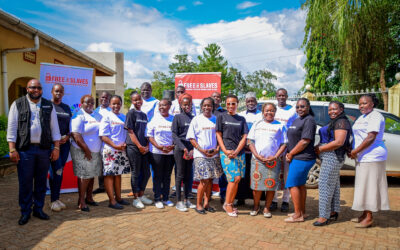Congress got tough on companies after the 2008 financial meltdown, enacting the Dodd-Frank Wall Street Reform Act. It included a vital section to combat exploitation in Congo, called the “Conflict Minerals” provision. The law will require companies to disclose whether their products are made with minerals from the conflict zone.
At a House subcommittee hearing on Thursday, representatives will likely hear that it is hard for companies to comply with the Conflict Minerals law. You can help balance the debate. Call Congress to be sure they hear how hard life is for Congolese people.
Despite nearly a decade of official peace, the Congolese still endure extreme human rights abuses. One reason is that an insecure climate allows the army and rebel and militia groups to continue to benefit illegally from the country’s mineral wealth. Congolese people are enslaved in mines and surrounding areas, forced into labor, sex slavery, debt bondage and hazardous child labor. See our investigative report and video.
The Conflict Minerals law has engaged the American public and major U.S. companies in the fight for peace and against corruption in Congo. For the first time, we understand our connection to the devastation and how we can play a part in ending it. As consumers, we can push companies connected to those mines to root out slavery at the source of their supply chains, and apply pressure for peace. Some critics in the U.S. claim the law has had unintended economic consequences. But our Congolese human rights partners, who work every day in mining areas, support the law.
So what can you do? Call members of the subcommittee listed below. For maximum effect, do it today or tomorrow morning.
Here’s what you can say:
I am calling because I understand that there will be a hearing on May 10th on conflict minerals regulations. I am deeply concerned about the conflict in eastern Congo and the role of the illegal minerals trade in fueling modern forms of slavery and other human rights abuses.
Please use your role as a member of the subcommittee to ask company representatives what they are doing to address slavery and the illegal trade in conflict minerals. Urge them to do more for peace in Congo by complying with regulations that will be issued by the Securities and Exchange Commission. Tell them that as consumers, we deserve to know where the minerals in our products are coming from.
Thank you in advance for taking steps to help break the link between the minerals trade in Congo and conflict, slavery and human rights abuse.
Members of the House Financial Services Committee’s International Monetary Policy and Trade Subcommittee:
Michele Bachmann, MN: (202) 225-2331
John Campbell, CA: (202) 225-5611
André Carson, IN: (202)-225-4011
Robert J. Dold, IL: (202) 225-4835
Bill Huizenga, MI: (202) 225-4401
Donald A. Manzullo, IL: (202) 225-5676
Carolyn McCarthy, NY: (202) 225-5516
Thaddeus G. McCotter, MI: (202) 225-8171
Gwen Moore, WI: (202) 225-4572
Gary G. Miller, CA: 202-225-3201
Ron Paul, TX: (202) 225-2831
David Scott, GA: (202) 225-2939
Gwen Moore, WI: (202) 225-4572
Gary G. Miller, CA: 202-225-3201
Ron Paul, TX: (202) 225-2831
David Scott, GA: (202) 225-2939
Thanks for taking action!


